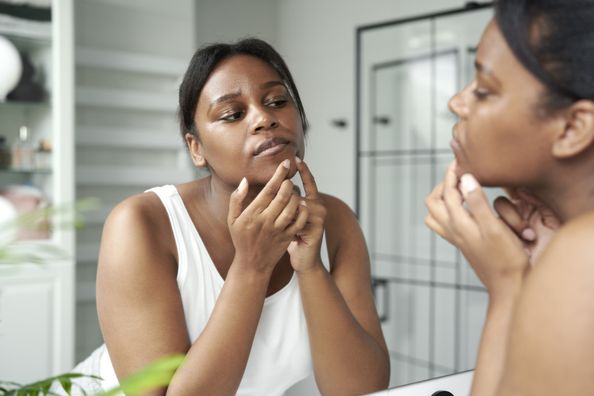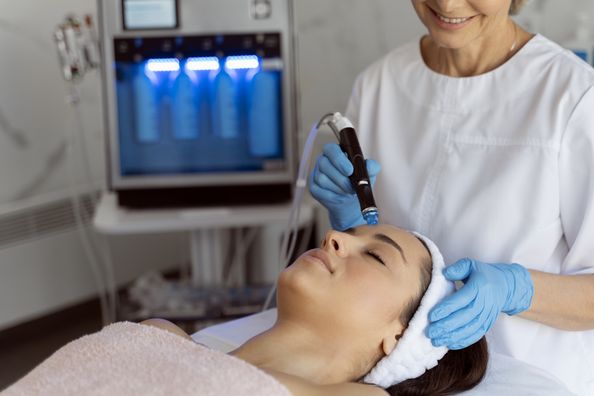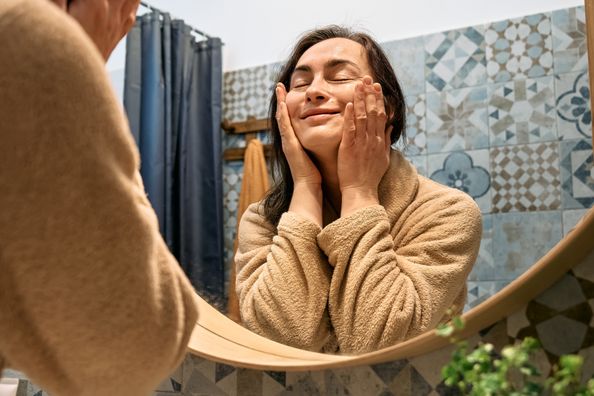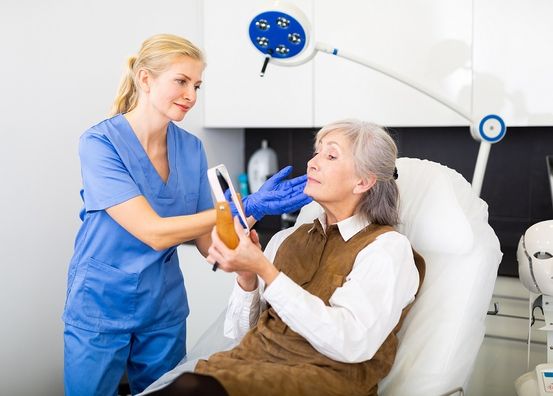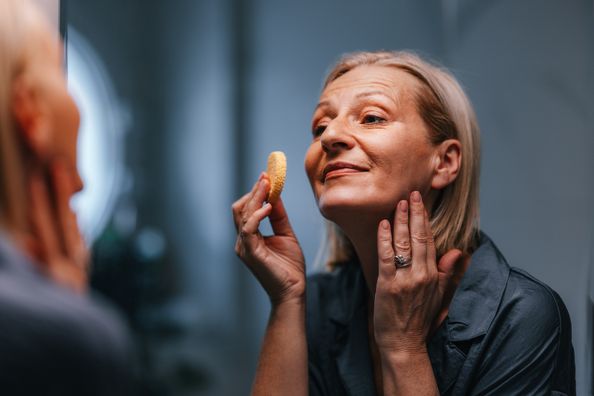At 30 years old, you’re probably thinking more about your career, your home, or your family than you’re thinking about acne. So, when a pimple appears one day — and then another and then another — it might catch you off guard. Isn’t acne a teenager’s problem? Why are you getting acne in your 30s?
While acne may be more likely during your teen years, that doesn’t mean that it can’t make appearances later in life.
Acne that occurs after age 25 is called “adult acne” or “post-adolescent acne.” Just like teenage acne, it develops due to:
- Buildup of dead skin cells in your pores (tiny openings in your skin)
- Bacteria growing in your pores
- Excess or high production of oil in your pores
There are a few differences in appearance. Unlike teen acne breakouts — which often appear on the entire face — adult breakouts typically occur on the cheeks, jawline, and chin. Also, teen acne can be a both inflammatory (red and sensitive, including cysts, nodules, papules, pustules) and non-inflammatory (blackheads and whiteheads), whereas adult acne is mainly just papules and pustules.
Learn more about different types of acne.
So, what causes these problems in the first place — and why are you still experiencing them?
Here’s why that pesky “teenage” problem might be back in your life as an adult:
Your Hormones Are Fluctuating
Hormone imbalances can cause acne breakouts. These hormone changes may be the result of:
- Menopause. In fact, adult acne is most common in women who are going through menopause. It can occur if estrogen drops while male hormones like testosterone stay the same or increase. Fortunately, it’s rare for acne to continue after menopause.
- Periods. Estrogen and progesterone are hormones that are linked to acne, and these hormone levels go up and down throughout your cycle.
- Pregnancy. Women with acne see improvements during the first trimester, as estrogen levels increase. Acne can worsen during the third trimester, when androgen hormone levels increase.
- Birth control pills. Adult acne can develop after stopping birth control pills.
There is also a link between acne and the hormones that your body may produce in response to stress. Stress can create an excess of hormones that are associated with acne, like cortisol or androgens (a group of sex hormones). While the jury is still out on whether stress can actually cause acne, it is known that it can worsen existing acne.
Experiencing adult acne? Make an appointment with a dermatologist at Duly Health and Care
Your Face Still Hasn’t Adjusted to Wearing a Mask
If your acne started right around the time masks entered the scene, it’s not surprising. Before 2020, our faces weren’t used to being covered with masks. Under masks, moisture can build up, trapping bacteria and dead skin cells — and potentially causing acne.
Don’t let that stop you from wearing a mask if recommended to, just make sure you’re paying extra special attention to the products you use on your skin and cleaning and moisturizing your face daily.
Also read, “Tips for Clear and Healthy Skin While Masking”
Your Skincare Regimen Needs a Makeover
If you are diligent about using skincare products and washing your face, it can be frustrating to still find yourself breaking out.
You might not be using the right products. Many skincare and hair care products, sunscreens, and types of make-up contain oils that can lead to acne. You might also be washing your face too much. While it seems counterintuitive (what harm can extra cleaning do?), scrubbing too often can irritate your skin and cause acne.
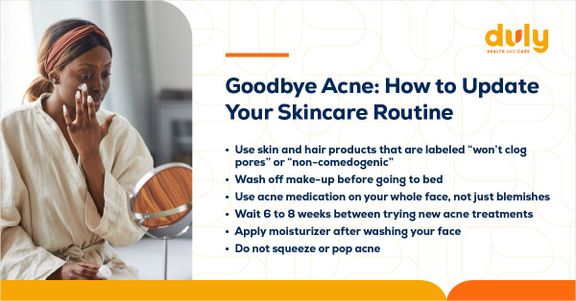
Also read, “Skincare at Every Age”
You Have Other Risk Factors for Developing Acne
Some risk factors for adult acne, like being a woman or having a family history of adult acne, can’t be changed.
However, you could potentially benefit from making a few changes to your daily habits.
Studies have shown that nicotine, lack of sleep, a diet high in sugar, and some medications may all be connected with acne, making acne worse or increasing your likelihood of developing it. Changing certain habits, like getting more sleep, might aid in clearing up acne. If acne is a side effect of a medication, talk to your provider about switching medications or finding other ways to control your acne. (But remember — do not stop or change medications without talking to your provider).
Whether your acne is due to a habit you can control, fluctuating hormones, or simply the luck of the draw, you don’t need to let a bout of acne stress you out. There are plenty of treatment options, from over-the-counter creams to chemical peels, acne-healing facials, and prescription therapy that can help you keep your skin clear and acne-free.
Health Topics:

